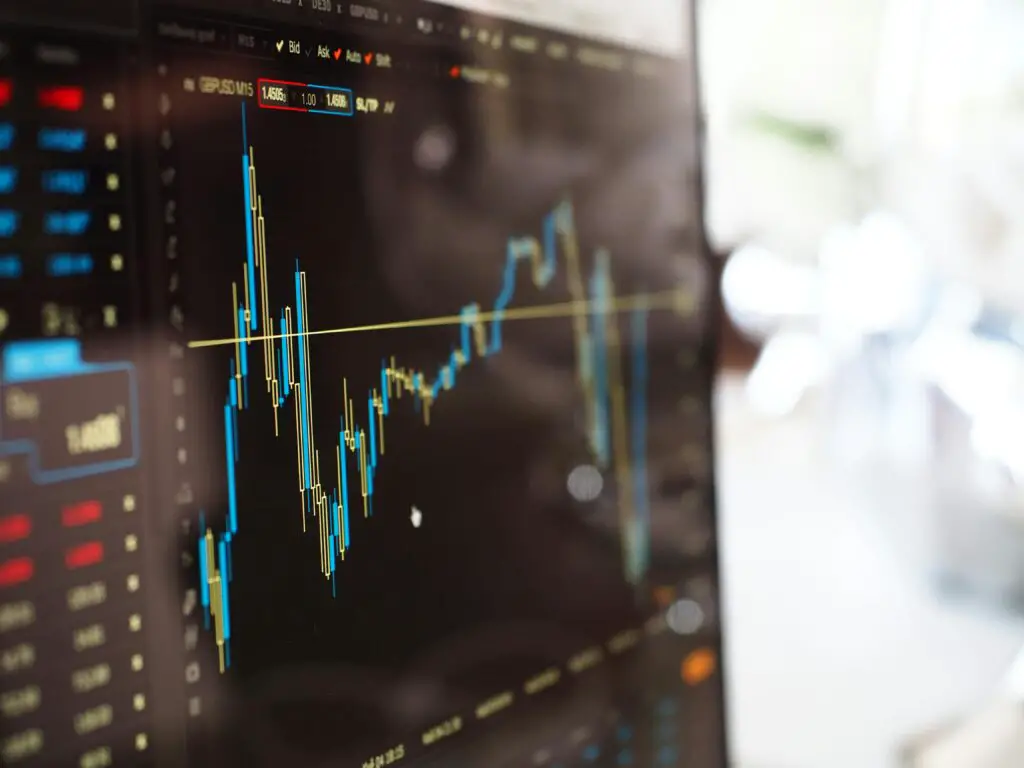Forex trading signals are advice or warnings about when to buy or trade a currency pair. Both automatic systems and human traders using different trading methods can produce these indications. Read also
Forex Trading Signal Types
Forex trading signals come in two primary varieties: automated and manual. Expert traders or researchers who study the market and offer their ideas produce manual signals. On the other hand, trading systems and algorithms created to find possibilities for trading produce automated signals.
The Operation of Forex Trading Signals
The simplicity of forex trading signals is what makes them so beautiful. You can get updates by email, SMS, or even your trading platform once you sign up for a signal service. Important details, including the currency pair, entry price, loss limits, and take profit levels, are included in these notifications.

Automated versus Manual Signals
Manual signals depend on human traders intuition and experience. They often consider market mood, news developments, and fundamental analysis. On the other hand, automated signals rely on mathematical algorithms and technical analysis. Which option is best for you will eventually depend on your trading preferences and style. Both have advantages and disadvantages.
Advantages of Using Signals for Forex Trading
They save you a great deal of time starting. You can rely on these signals to make informed choices rather than investing hours in chart and news analysis. In addition, they assist in lowering emotional trading, a common mistake many traders make. You can maintain a disciplined trading plan by sticking to predetermined signals.
Enhanced Precision
The potential for higher accuracy is one of the main benefits of forex trading signals. Whether manually or automatically generated, these signals can improve your trading accuracy because they are often founded on comprehensive research and established techniques.
Selecting Accurate Forex Trading Indicators
Only some trading signals for forex are made equally. Start with comprehensively researching and reading other traders reviews to identify the best ones. You can test out many signal providers services before committing by taking advantage of their complimentary trials or subscription services. Make sure the signals work with the trading platform you use as well.
Trading Signals for Forex Manually
Manual signals are generally chosen by traders who value human understanding and judgment. They may include a broader range of parameters, including news events and market mood. However, they require a higher level of faith in the signal giver and may be slower than automated signals.
Automated Forex Trading Signals
Automatic signals are produced by complicated algorithms that can process tremendous quantities of details quickly. These algorithms are perfect for traders who would instead follow a hands off strategy and take advantage of market opportunities without continuous supervision. However, they might need to be more responsive to unanticipated shifts in the market.
Leading Suppliers of Forex Trading Signals
It is important to consider reliability and performance while selecting a signal supplier. Learn 2 Trade, Daily Forex, and ForexSignals.com are a few of the top providers on the market. Different features, payment options, and support levels are provided by each supplier.
Including Forex Trading Alerts in Your Approach
Include forex trading signals into your current trading strategy to get the most out of them. Set up alerts and alerts to remain informed about the most recent signals. Customize the signals to your trading objectives and risk appetite.
Limitations and Hazards of Forex Trading Signals
Forex trading signals include some risk, even though they can be accommodating. Dependence too heavily on signals without knowledge of the underlying market dynamics is one potential trap. Furthermore, the possibility of fraud and unethical suppliers never goes away. Make sure you have done your research before committing to any signal service.
A: Limitations of Forex Trading Signals
Problems with Accuracy:
Signals may not work well in highly volatile or unexpected market situations. Delays between signal generation and execution may impact the precision of the entry and exit points. When signals are not correctly verified, they might occasionally deceive traders and result in losses.

Excessive Dependence on Signals:
Traders may make rash trading decisions because they become emotionally attracted to signals. More than relying on signals may impede a trader’s ability to improve their trading methods and abilities.
Technical Restrictions:
Technical issues or platform failures on the part of the signal provider may impact signal delivery. Some signal providers only provide limited customization choices, which may not suit every traders tastes.
B: Forex Trading Signals Hazards
Possibility of Monetary Loss:
Because of forex markets intrinsic volatility, trading purely on the basis of signals might increase financial risk. When traders rely too much on outside signals, they risk losing control over their trading decisions.
Security Issues:
By providing signal providers with personal and financial information, traders run the risk of hacking or misuse. You risk being a victim of dishonest signal providers who use dishonest tactics or promise astronomical profits.
Regulatory and Legal Risks:
Signal providers who work in unregulated markets may disregard consumer protection legislation or industry standards. When interacting with look after signal providers, traders may need helps or dispute settlement difficulties.
How to Get the Most Out of Forex Trading Signals
Use your analysis together with forex trading signals to maximize their benefits. Use signals as a guide, but make sure your investigation supports them. Keep improving your tactics in response to feedback and market trends.
Recognize the Types of Forex Trading Signals:
Indicators or suggestions that alert traders of possible trading opportunities in the currency markets are known as forex trading signals. Technical analysis based systems can produce signals themselves or skilled traders can produce them manually.
Select a Trustworthy Signal Provider:
Seek out trustworthy suppliers who have a history of providing precise indications. Examine customer comments and assessments to determine the signal provider’s dependability and effectiveness.
Accurately Interpret Signals:
Determine the most important elements of a signal, including the entry point, take profit, and termination levels. Use further technical and structural investigation to verify the signal’s authenticity.
Include Signals in Your Trading Approach:
Incorporate signals into your current trading strategy to support your risk tolerance and trading goals. To guarantee disciplined trading, establish specific entry and exit points based on the signals received.
Effectively Manage Risk:
Using the signals as a guide, assess each trade risk reward ratio to establish the ideal position size. Use stop loss orders at all times to protect your capital and reduce any losses.
Track Signal Efficiency:
Keep a trading journal to monitor signal performance over time. Analyze signal effectiveness on a regular basis and adapt your plan as necessary to the market state.

Continue to Learn and Adjust:
Keep yourself informed on happenings in geography, the market, and the economy that could affect currency movements. Be flexible and prepared to modify your trading plan in response to shifting market conditions.
Typical Errors in Forex Trading Signals to Avoid
Stay away from the error of depending too much on forex trading signals. Keep in mind that these are aids, not guarantees of success. Remember to take into account primary considerations and more significant market conditions. A comprehensive strategy will produce superior outcomes.
Heavy Dependence on Signals:
Traders cannot do their own research if they depend on signals. This may result in inadequate choices, particularly if the signals are incorrect or inappropriate for the market state.
Neglecting the Market Context:
Employing signals without taking into account more general economic and market trends. Signals may recommend trades that result in losses because they deviate from the primary trend.
Using Signal Providers Without Verification:
Putting faith in signals from suppliers who are still building a reputation. Unverified suppliers could deliver incorrect or fraudulent signals, resulting in significant losses.
Absence of Personalization:
Failing to modify signals to consider different trading styles and risk appetites. A trader may make choices that could be better as a result of generic signals not matching their objectives.
Ineffective Risk Reduction:
Failing to employ orders for stop loss or appropriately size positions in response to indications. If the market goes oppositely from what was anticipated, this could result in significant losses.
Following Indications:
Using indications to enter trades after the best time to do so has passed. Due to this, trades are often placed too late, which lowers possible gains or raises the risk of losses.
Trading too much:
Trading too much based on multiple signals. Overtrading may reduce total returns by increasing transaction costs and exposing investors to market volatility.
Forex Trading Signals Future
The future of forex trading signals appears bright thanks to changing market trends and technology enhancements. AI and machine learning are expected to become increasingly important in improving the accuracy and adaptability of signals.
Learning Machines and Artificial Intelligence:
In the future of forex trading signals, artificially intelligent and machine learning are expected to be very important. Signal providers may now analyze enormous quantities of data more rapidly and with greater accuracy than ever before by utilizing these technologies. Algorithms using AI and ML can spot complex patterns and trends that human analysts could miss, producing trading signals that are more accurate and timely.
Combining Big Data Integration:
Another promising development is the integration of big data into forex trading signals. Big data refers to the investigation into large and comprehensive data sets from many different places, such as social media, media, economic indicators, and market. Big data analytics can help signal providers create more trustworthy signals by giving them a more thorough understanding of market dynamics.
Blockchain Technology:
Blockchain technology can completely alter the development and distribution of forex trading signals. Due to its democratic and transparent structure, blockchain may assure the reliability and credibility of trading signals. Furthermore, smart contracts on blockchain systems might reduce the need for user involvement by automating the carrying out of transactions based on particular signals.

Enhanced Customization and Personalization:
Future forex trading signals should become more individualized and customized as traders seek more customized solutions. Signal providers will have more choices to customize signals to traders goals, risk tolerance, and trading preferences. Thanks to this specific method, traders will be able to obtain signals that are more closely aligned with their individual strategies.
Conclusion
Signals for forex trading can be a valuable addition to your trading inventory. They provide improved accuracy, time savings, and emotional control. But picking trustworthy suppliers and incorporating signals into an extensive trading plan is important.